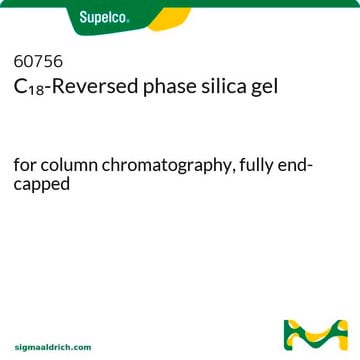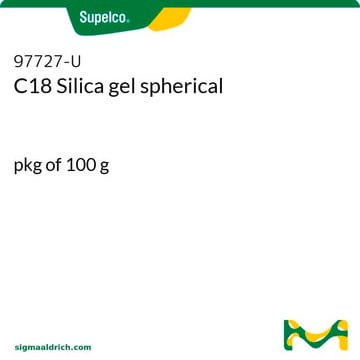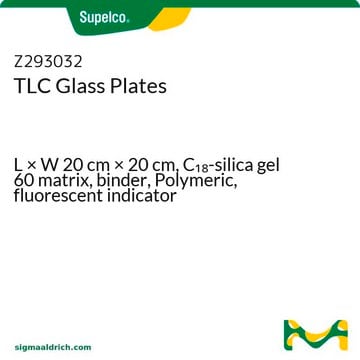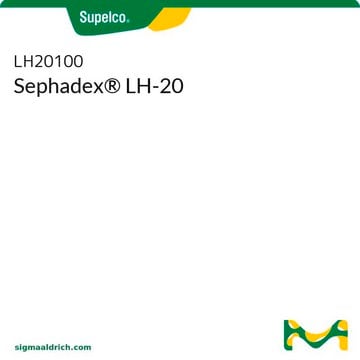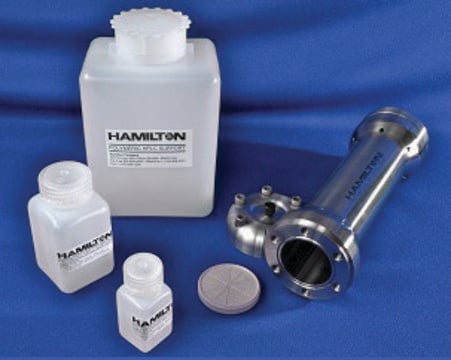60757
C₁₈-Reversed Phase Silica Gel Chromatography Media
230-400 mesh, fully endcapped
Synonym(s):
Reversed phase silica gel 90 C18
Sign Into View Organizational & Contract Pricing
All Photos(1)
About This Item
Recommended Products
Product Name
C18-reversed phase silica gel, for column chromatography, fully endcapped
grade
for column chromatography
Quality Level
form
gel form
quality
fully endcapped
technique(s)
LPLC: suitable
surface area
400 m2/g
surface coverage
max. surface coverage (C) 17‑18% ±4 μmol/m2
matrix
Silica
matrix active group
C18 phase
particle size
230-400 mesh
40-63 μm
pore size
90 Å pore size
separation technique
reversed phase
Related Categories
Application
for reversed phase and ion pair chromatography
Storage Class Code
11 - Combustible Solids
WGK
nwg
Flash Point(F)
Not applicable
Flash Point(C)
Not applicable
Personal Protective Equipment
dust mask type N95 (US), Eyeshields, Gloves
Choose from one of the most recent versions:
Already Own This Product?
Find documentation for the products that you have recently purchased in the Document Library.
Seham S El-Din El-Hawary et al.
Antioxidants (Basel, Switzerland), 8(12) (2019-12-19)
The prevalence of hepatic diseases globally and in Egypt particularly necessitates an intensive search for natural hepatoprotective candidates. Despite the traditional use of Chrysophyllum oliviforme L. and C. cainito L. leaves in the treatment of certain ailments, evidence-based reports on
Erica C Larson et al.
PloS one, 15(5), e0233485-e0233485 (2020-05-30)
Antimicrobial resistance is a growing global health and economic concern. Current antimicrobial agents are becoming less effective against common bacterial infections. We previously identified pyrrolocins A and C, which showed activity against a variety of Gram-positive bacteria. Structurally similar compounds
Our team of scientists has experience in all areas of research including Life Science, Material Science, Chemical Synthesis, Chromatography, Analytical and many others.
Contact Technical Service